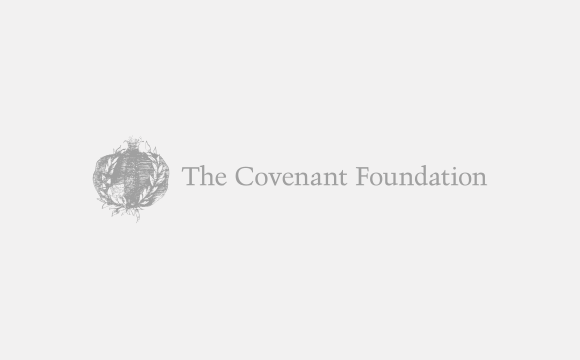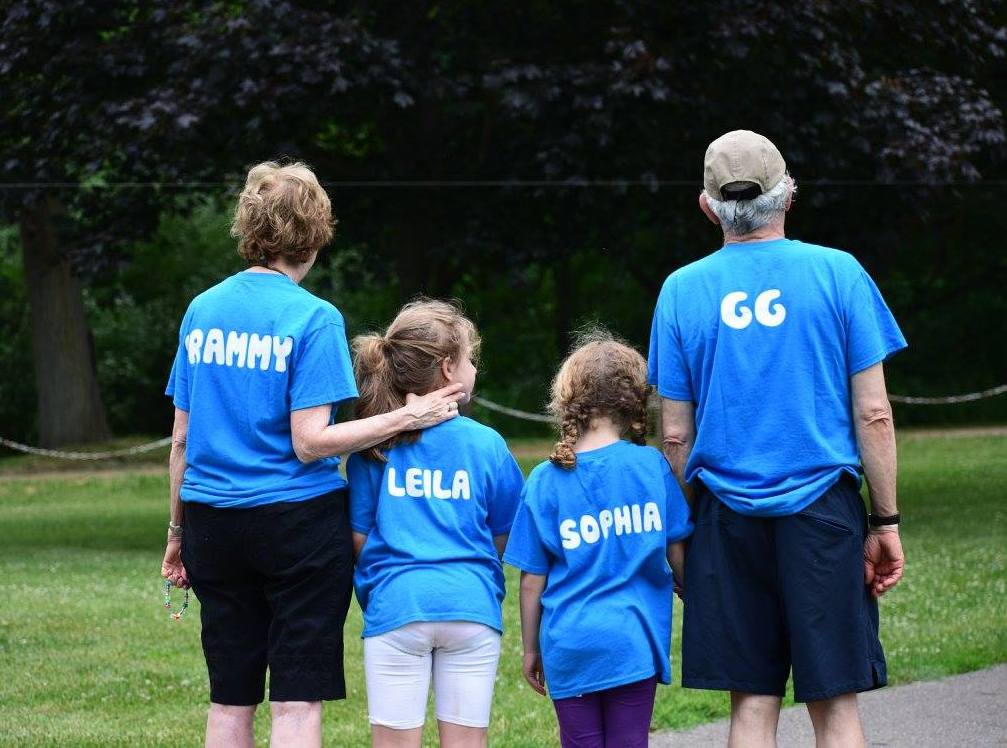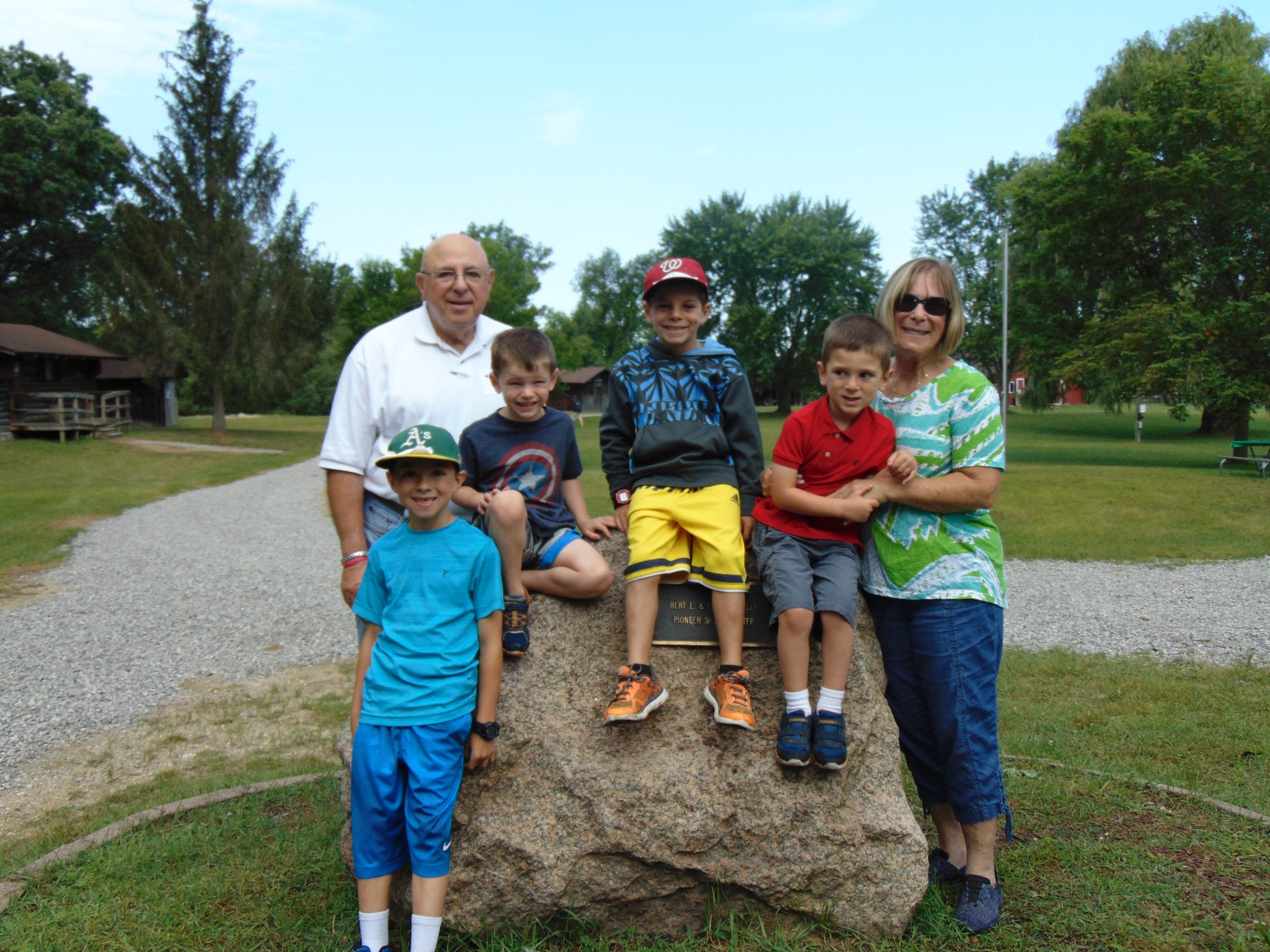Jewish Grandparents Step Up
The University of Iowa student was outfitted in construction gear, helping to build a house as part of a community service project. To Bley, who fell just a note shy of declaring her the model grandchild, it was the perfect representation of Jewish values passed to – and living in – a new generation.
“When I saw that picture, I just kvelled,” she said while attending a program at her synagogue to equip grandparents with knowledge, skills and tools to be effective modelers and transmitters of Jewish traditions and values to their grandchildren.
“It’s not like I wouldn’t expect her to do this, but to see it and hear about is just so heartwarming and real.”
Bley was one of about 20 grandparents who gathered on a recent Sunday at Congregation Solel in Highland Park, just outside Chicago, for the latest installment of the program, nicknamed GIFTS, for Gratitude, Family, Tzedakah, and Service.
The program leverages the potential of grandparents as influencers within families to reach the youngest generation, which is often growing up in interfaith families with little or no Jewish exposure, or within Jewish, yet relatively non-observant households.
“Grandparents have a special relationship with their grandchildren and have a unique opportunity to share experiences and time and make things seem extra special,” said Hallie Shapiro, Assistant Vice President, Israel Experience and Youth Initiatives, at the Jewish United Fund/Jewish Federation of Metropolitan Chicago (JUF). “They are a link to earlier generations of Jewish practice and values.”
JUF is partnered with Grandparents for Social Action and Interfaith Family/Chicago in this first year for GIFTS, being piloted at three synagogues in the Chicago metro area and reaching about 75 participants. It is supported with an Ignition grant from The Covenant Foundation.
At Congregation Solel this one Sunday, grandparents gathered in a Hebrew school classroom to discuss how they could mark Hanukkah – and its intersection this year with Thanksgiving – to impart the Jewish take on gratitude, freedom, miracles, and giving back.
Sharon Morton, the Executive Director of Grandparents for Social Action, led the group through exercises to dig deep into these themes and to give them life with age-appropriate activities, from making a menorah with grandchildren and giving it to a family that may not have one, to discussing life in societies where religious freedom is suppressed.
In fact, Jewish holidays, life cycle events and simchas, infused as they are with meaning and opportunities for reflection, are central to the GIFTS approach to encourage cross-generational learning moments, activities and community engagement, Morton said.
“These are natural times for grandparents and grandchildren to be together,” she said. “Our traditions and beliefs tell us not only about being Jewish, but also about doing Jewish. So there is real opportunity for grandparents to pass on a Jewish engagement with the world.”
The approach was exhibited earlier this month, when scores of participants – representing three generations – crowded a supermarket outside Chicago to buy items for a local food pantry and homeless shelter needing provisions in advance of the holiday season. Temple Chai, a synagogue in Long Grove and a participant in the GIFTS initiative, organized the service project.
“Being an example and exposing my grandchildren to Jewish values and traditions without being dogmatic is the challenge,” said Sally Maybrook of Highland Park, who has three young grandchildren. “So I do have questions and want and need to know how best to impart these. GIFTS is invaluable in helping me learn best approaches.”
In an age when Jewish families can be less than homogeneous due to alternative living arrangements, geographic distance, and varying degrees of observance, the landscape can be uneven. The group of grandparents gathered at Congregation Solel, for instance, described families representing nearly every configuration imaginable.
But the program seeks to meet participants on the common plane of grandparenthood and the special place they own on the generational chain, and offers them an opportunity not only to gain knowledge, but also discuss and learn from the experiences of others.
“Our job is to look at the realities and to understand, appreciate and respect where each of them may be and what their particular challenge may be,” said Morton, a pioneer in family education. “We bring them from whatever place they are, to a more satisfying place. The common denominator is a desire to impart to grandchildren a Jewish-inspired way of interacting with the world and that alone is a very powerful motivator.”
Bley, in addition to her granddaughter in Iowa, has seven others, but none living in or near Chicago. “My biggest challenge is that they are all out of town. Our experiences here are so fully across the spectrum, but they overlap, because we are all aiming for the same thing.”
The GIFTS program is expected to expand to four or five additional Jewish institutions in Chicago and the surrounding area in the spring. An educator guide and a website is in development not only to enhance and strengthen the program at its home base, but also so other communities across the country can model and replicate it.
“Grandparents are hungry for this interaction with their peers to learn and empower themselves and to leave a younger generation with the values and traditions that they hold so close,” said JUF’s Shapiro. “There are just so many possibilities for growth and generational impact.”
By H. Glenn Rosenkrantz, for The Covenant Foundation


